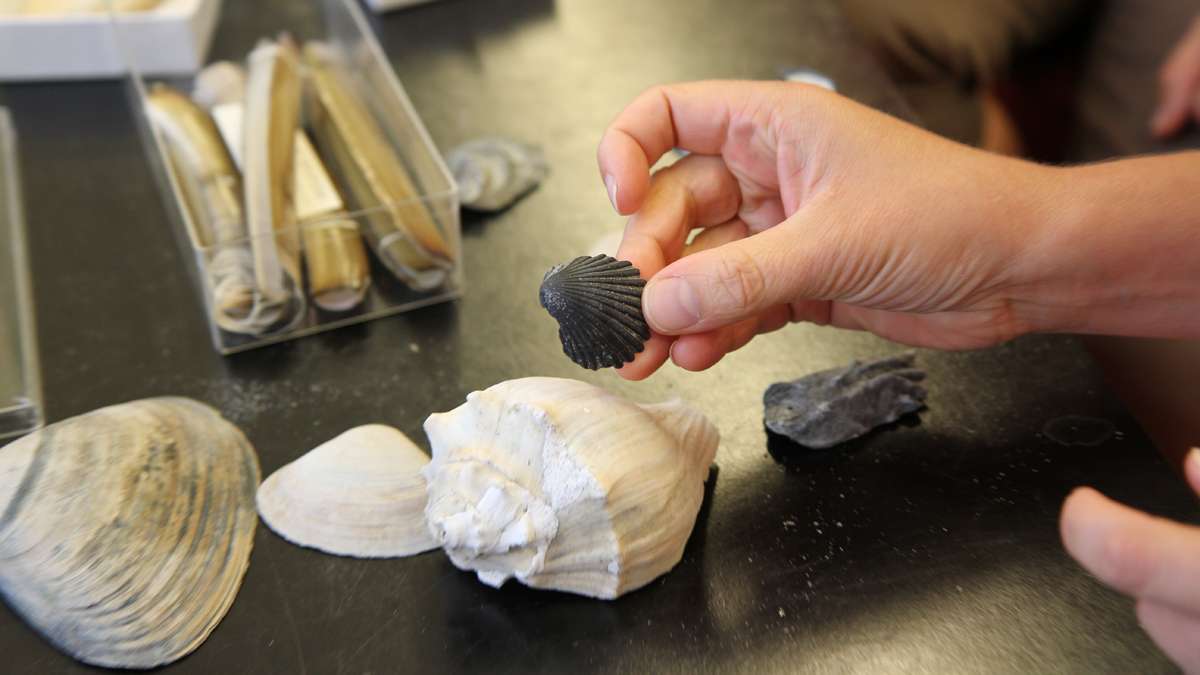Understanding menopause post hormone replacement fallout
ListenResearchers and doctors are crafting a new approach to menopause.
Menopause, or “the change” as it is often called somewhat euphemistically, can go by almost unnoticed for some women – but for others, it’s a period of great difficulty and suffering.
During menopause, the body slows and eventually stops its production of estrogen and progesterone, which affects much of the central nervous system. Women experience symptoms such as hot flashes, memory problems, mood swings and irritability.
Today, women’s options for treating their menopause symptoms appear fairly limited, as hormone replacement – pills, patches or creams that balance out the dwindling natural supply in women’s bodies – has gone from magic bullet to devil incarnate to something many doctors prescribe only reluctantly.
Having the hormone talk
At “Women for Women” at Lankenau Hospital in Wynnewood, Pa, just outside of Philadelphia, Dr. Jane Porcelan was seeing her first post-lunch patient, a 49-year-old woman.
“Are you having any problems?” asked Porcelan. “I haven’t really been sleeping well lately, just not feeling like myself,” answered the petite blonde woman quietly. She mentioned hot flashes – and feeling irritable and cranky. “I’m a little moodier, I have teenagers, so I chalked it up to having teenagers, but I think I am moodier with them; I’m trying not to be.”
Eventually, Porcelan and her patient got to potential hormone therapy, very carefully weighing the risks and benefits. “We encourage women to stay on the lowest dose possible for the shortest amount of time possible,” explained the ObGyn.
This kind of conversation did not really happen before 2002 – because up to that point, hormone therapy was seen as the absolute way to go for women struggling during menopause – but then, everything changed.
“The phones were ringing off the hook, because women were really panicked,” recalled Porcelan. “Women ripped off their patches, they stopped taking their pills and a lot of people were miserable,” said Neill Epperson, who directs the Penn Center for Women’s Behavioral Wellness.
The fallout from the Women’s Health Initiative
What caused this widespread panic? Here’s what happened, in a nutshell.
Generally, women are less at risk for cardiovascular disease than men – until they go through menopause. Then the numbers even out. So, health experts thought that it was hormones that protected women from getting heart disease. “During menopause, hormone production of estrogen and progesterone decreases, so they thought ‘well, lets see if we give all women hormone therapy, if we can decrease the risk of cardiovascular disease,'” explained Epperson.
She says The Women’s Health Initiative, a massive federal project, started in the early ’90s and enrolled over 100,000 post-menopausal women to test what they were hoping were beneficial effects of hormone therapy.”Unfortunately, the data didn’t pan out that way exactly,” said Epperson.
The trial was stopped in 2002, and in July of that year, Women’s Health Initiative director Jacques Rossouw doled out the bad news at a Washington press conference. “Women should not start or continue this therapy to prevent heart disease, the findings show it doesn’t work,” he said. “In fact the therapy increases the risk for heart attack or stroke, additionally, it increases the risk for breast cancer and for blood clots.”
The word quickly spread across news channels, and shockwaves of the announcement were heard across the world.
“The media hyped up, in my opinion, excessively, the risk of estrogen and made it seem like no woman who was post-menopausal should be on estrogen,” said Epperson, who believes that the way the Women’s Health Initiative study was set up was flawed.
“What lay people and a lot of physicians still don’t really recognize is that two-thirds of the women were above 65 in that sample,” she said. “That is way post-menopause and past the last time the women would have been exposed to estrogen. If you go through a period of time without being exposed to these hormones, when you add back these hormones year later, you don’t get the same kind of response.”
Epperson says the latest research shows that the risk-benefit analysis of hormone replacement is far more complicated and layered than the women’s health initiative findings suggested.
Despite that, Hormone use has declined significantly in the years since this study – women remain scared to try it, doctors are often reluctant to prescribe it. For many women, it’s meant struggling with a variety of symptoms – mood swings, depression – hot flashes – and memory loss on their own.
Coping with symptoms
Alexandra Stoll owns Chimayo Gallery in Perkasie, Bucks County. She is 56 years old, and started feeling menopause symptoms in her early 50s, even though she didn’t identify them as such at first. She says her memory has taken a hit.
“It’s stuff like ‘you know that thing; that is the movie, where that woman who is married to that guy is doing this thing’ – it is a domino of forgetting!” she said with a laugh.
She says she jokes about menopause with her friends all the time. “I haven’t experienced any memory loss – who’s that? The humor is definitely there,” she said.
Stoll is experiencing a variety of symptoms, but is not using hormone therapy, because she says she generally tries to cope with ailments in a natural way. She has trouble focusing, but is wondering if her cognitive symptoms really come from menopause. “You question all of these things. Is it menopause, or am I just not as interested as I used to be?”
Neill Epperson says it’s easy to blame changes in memory and cognition on age – but recent research that followed women over a long period of time found that there is an age-unrelated impact of menopause on brain function – and for many women, that comes at a highly inconvenient time. “Obviously when a woman starts to get to her 50s, if she has done well in her profession, she is probably on top of her game, and they really rely on their noggin, to be able to do their job.”
Beyond mood swings
Many women report mood swings during menopause – feeling irritable. But there’s also an increased risk for depression. “There are women who have never had a depressive episode in their entire life, and they are still two to three times more likely to become depressed during the menopausal transition. So it is as if having these hormonal fluctuations has unmasked their vulnerability to depression,” explained Epperson.
Despite the serious symptoms many women experience – Epperson says many feel their doctors are not really listening, and tell them to “just get through this.”
A new look at hormone replacement, and careful use
“I can’t tell you how many people come to my office and say ‘my doctor will not prescribe hormone therapy,’ and this is a woman who is really suffering, and she has no contra-indication – she has no elevated breast cancer risk, she has no blood clotting disorders, or a lot of strokes in her family.”
Hormone replacement is effective and safe for many women – but not a magic bullet, warns Dr. Daniel Monti, medical director of the Jefferson Myrna Brind Center. He says they can help patients reduce symptoms, but lifestyle changes are equally important. “Getting stress under control, and diet and exercise, those three things can have a huge impact in what those middle decades and afterwards look like sometimes that’s not enough, but that’s where we always like to start with people.” Monti says hormones can help, but there has to be a commitment to wellness to really feel better.
Neill Epperson says that best practice today means an individualized approach to hormones. “If you are going to do it, the best thing to do is work with your physician, to find a strategy that works best for you, and to do it early on, when you, perhaps even before you have gone a full year without your menstrual period.”
Epperson gives talks to ObGyns to bring them up to speed on hormone replacement and the latest research and findings – and she says the field is adapting and changing with new approaches emerging – for example cyclical hormone replacement, that would mimic more closely how the body disperses hormones into its operating system.
WHYY is your source for fact-based, in-depth journalism and information. As a nonprofit organization, we rely on financial support from readers like you. Please give today.


























